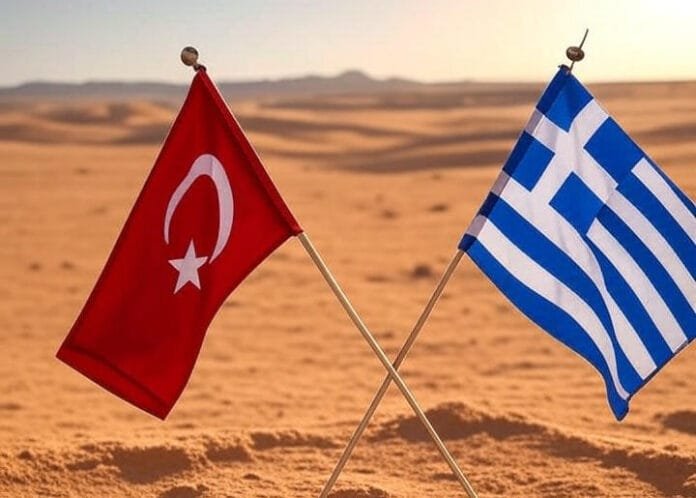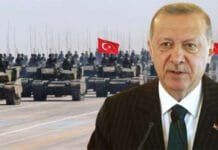INVC NEWS
Ankara – : The escalating tensions between Turkey and Greece have once again captured global attention as both nations engage in a fierce exchange of accusations rooted in a century-old conflict. The latest flashpoint emerged following Greece’s commemoration of the 1919 war anniversary, a move that reignited historic grievances and led to a sharp diplomatic confrontation. Greece marked the day by remembering the Pontic Greeks who perished during the conflict, while Turkey vehemently rejected these claims, labeling them as baseless and fictional.
Turkey’s Firm Rebuttal to Greek Allegations
Turkey’s Foreign Ministry responded strongly to Greece’s official statements, condemning the narrative presented on the anniversary. The Turkish government denounced the Greek portrayal of the events as an attempt to distort history and weaken diplomatic ties. Turkey emphasized that its freedom struggle, initiated under the leadership of Mustafa Kemal Atatürk on May 19, 1919, should not be defamed by such unfounded allegations.
The Turkish Ministry described Greece’s accusations as a reversal of historical facts and reminded the international community of the atrocities committed by Greek forces in the Anatolia region during the same period. Referencing the investigation commission report and Article 59 of the Treaty of Lausanne, Turkey underlined the legal documentation of violations by the Greek army during the war.
The Greek Perspective and the Pontic Genocide Claim
Greek officials, led by President Constantino Tasoulas, solemnly commemorated the Pontic Genocide, which Greece officially recognizes as the systematic killing of approximately 370,000 Pontic Greeks along the Black Sea coast from 1914 to 1923. Greece has designated May 19 as an annual day of remembrance since its formal recognition of the genocide in 1994.
The Greek government’s decision to highlight the atrocities committed by Turkey on this occasion has fueled diplomatic tensions, with Greece accusing Turkey of ongoing denial and minimizing of historic crimes. This longstanding dispute over the interpretation of historical events continues to challenge reconciliation efforts between the two neighbors.
Turkey Calls for an End to Historical Animosity and Diplomatic Strife
While Turkey firmly rejects the allegations and defends its historical narrative, it also expressed a willingness to move beyond past conflicts. The Turkish Foreign Ministry’s statement concluded with a call to cease initiatives that reopen old wounds and exacerbate hostility. Turkey urged Greece to refrain from politicizing historical events for public appeal and to focus on improving bilateral relations that have seen progress in recent years.
Turkey reminded Greece of its own dark chapters, referencing the 1821 Tripolitsa Massacre and other brutal acts committed against Turks and ethnic groups during the Greek War of Independence, underscoring the complexities of shared history and the dangers of selective memory.
Impact on Turkey-Greece Relations and NATO Dynamics
The current diplomatic dispute adds strain to the already delicate relationship between two NATO allies, complicating regional security cooperation and geopolitical stability in the Eastern Mediterranean. Both nations continue to assert their historical narratives strongly, reflecting deeper nationalist sentiments and unresolved issues from the past century.
The international community watches closely as Turkey and Greece navigate this sensitive episode, balancing the need for historical acknowledgment with the imperative of diplomatic dialogue and regional peace.
Renewed tensions between Turkey and Greece over the historical legacy of the 1919 war highlight the fragile nature of bilateral ties and the ongoing challenges in reconciling divergent national narratives. The path forward depends on both countries’ willingness to acknowledge historical truths while fostering constructive engagement to ensure lasting stability in the region.
















